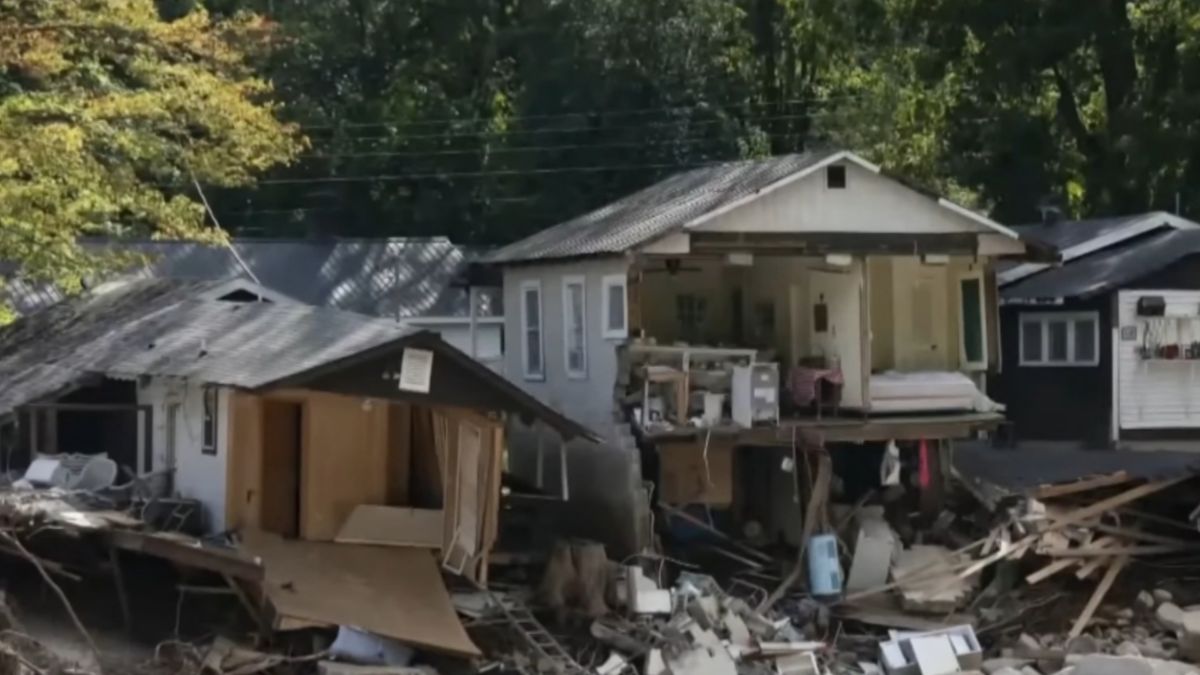
Hurricane Helene Aftermath: Death Toll Rises, Millions Without Power
2 Min Read
Hurricane Helene Aftermath: Death Toll Rises, Millions Without Power
In the devastating aftermath of Hurricane Helene, the death toll has climbed to 87, and millions of people remain without power as emergency services continue rescue and recovery efforts. Communities across the southeastern U.S. are grappling with the catastrophic effects of one of the most powerful storms to hit the region in recent history. Officials fear that the situation could worsen as more bodies are discovered in the wreckage left by flooding and high winds.
Rising Death Toll and Widespread Damage
Local authorities confirmed that the death toll has increased as recovery teams reach more remote areas. Several counties in Louisiana, Mississippi, and Alabama have reported heavy casualties, with numerous homes and buildings destroyed by the intense winds and rising floodwaters. Governor John Bel Edwards of Louisiana expressed his grief at the rising death count, saying, “We are deeply saddened by the lives lost in this terrible storm. We are doing everything we can to reach those who are still in danger.”
In addition to the growing number of fatalities, millions of homes and businesses have been left without electricity, exacerbating an already difficult recovery process. Utility companies have mobilized thousands of workers to restore power, but officials warn that it could take weeks before electricity is fully restored in some of the hardest-hit areas.
Impact on Infrastructure
Hurricane Helene’s powerful winds, which reached up to 150 mph, tore down power lines, uprooted trees, and caused widespread damage to roads, bridges, and critical infrastructure. Several towns remain cut off due to collapsed bridges and impassable highways. Hospitals in affected regions have been relying on backup generators, but officials have expressed concern about fuel supplies running low.
David Evans, an official with the Federal Emergency Management Agency (FEMA), stressed the importance of patience during the recovery phase. “We understand that the situation is dire for many residents, but our teams are working tirelessly to restore normalcy. This is one of the largest storm recovery efforts in recent memory, and we’re coordinating with state and local governments to expedite relief efforts.”
Rescue Operations Continue
Search and rescue operations are ongoing as emergency responders work to locate survivors trapped in their homes or stranded in flooded areas. The National Guard has been deployed to assist in rescue missions, using helicopters and boats to access remote communities. So far, over 1,200 people have been rescued, but authorities believe many more may still be waiting for help.
Mary Johnson, a resident of Baton Rouge, shared her harrowing experience of being stranded in her flooded home for two days. “The water rose so quickly. One minute it was just raining, and the next, it was up to our windows. We were terrified. The rescue team saved our lives,” she recounted tearfully. Johnson’s story is one of many from residents who have faced terrifying conditions in the storm’s wake.
Millions Without Power
Power outages are a major concern in the aftermath of Hurricane Helene, with over 3.5 million people currently without electricity. Utility companies have called in additional crews from neighboring states to help restore power, but the sheer scale of the destruction has slowed progress. Entergy, one of the major power providers in the region, said that some of the areas may not have power for weeks, given the extent of the damage to infrastructure.
“We are working around the clock to get people’s power back, but we’re dealing with severely damaged transmission lines and substations,” said James Mitchell, a spokesperson for Entergy. “Our crews are doing everything they can, but it’s going to be a long process.”
Calls for Federal Assistance
In the wake of the disaster, officials are calling for more federal assistance to help the affected states recover from the storm. President Joe Biden has declared a state of emergency in Louisiana, Mississippi, and Alabama, opening the door for federal aid and resources to flow into the region. The president expressed his support for the victims, stating, “Our hearts go out to all those affected by this devastating storm. We are committed to providing all the support necessary to help these communities rebuild.”
Federal funding will be crucial for repairing damaged infrastructure, assisting displaced residents, and restoring power to the millions currently in the dark. The Department of Housing and Urban Development (HUD) is also expected to provide assistance for those whose homes have been destroyed or severely damaged.
Environmental and Long-Term Impact
Experts are warning that the environmental impact of Hurricane Helene could be long-lasting, with flooding potentially contaminating local water supplies and displacing wildlife. The agricultural sector has also taken a hit, with thousands of acres of farmland inundated by floodwaters, raising concerns about crop losses in the region.
In addition to the immediate damage, the region will likely face long-term challenges in rebuilding homes, restoring infrastructure, and ensuring that disaster preparedness measures are improved to withstand future storms. Climate scientists have pointed to the increasing intensity of hurricanes in recent years as evidence of a broader trend of stronger and more destructive storms, potentially linked to global climate change.
Conclusion
As the death toll continues to rise and millions remain without power, the aftermath of Hurricane Helene serves as a stark reminder of the devastating power of nature. While rescue and recovery efforts are ongoing, the road to full recovery for the impacted communities will be long and challenging. Federal assistance, community resilience, and ongoing efforts from emergency services will be crucial in helping these areas rebuild and recover.
In the coming weeks and months, as the region works to overcome the immense challenges posed by the storm, the focus will shift toward rebuilding homes, restoring power, and ensuring that communities are better prepared for future disasters. For now, the priority remains on saving lives and helping those most affected by this devastating storm.


